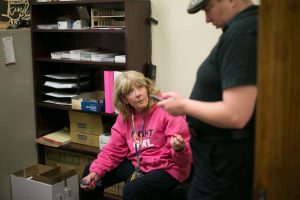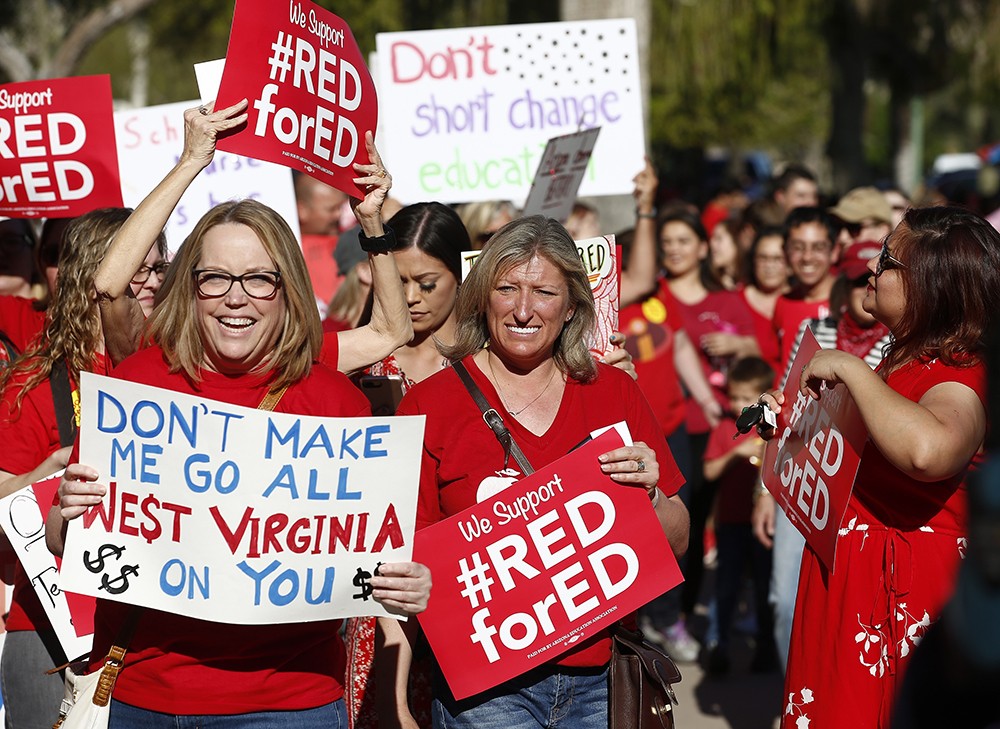One West Virginia city is trying a new approach to persuade more overdose patients to seek treatment. The idea is simple: Within 24 to 72 hours of an overdose, a “quick response team” fans out into the community and tries to meet with the patient to discuss treatment options. A handful of similar programs exist around the country, but West Virginia’s first team launched in December in Huntington with the help of two federal grants. Health officials said it already has been remarkably successful.
The Idea
“We’ve been having a lot of overdoses in Huntington and Cabell County and really the big thing that stood out to many of us is what are we doing afterwards?” said Bob Hansen, director of the Huntington quick response program.
He saw an article about a similar program in Colerain, Ohio. They invited the heads of that program to Huntington, did a training and loved it. So Hansen and several other key players in the local opioid-response programs orchestrated applications for two federal grants. They got both.
Colerain reported more than 80 percent of the people they visited were getting into treatment programs. Huntington was hoping for one in five.
They’re now in their fourth month and Hansen said they’re getting up to 40 percent of the people they engage with into treatment.
“And you think if we maintain that percentage over time it kind of has a cumulative effect. So you have to think by year three we should be really hitting the people to the point to getting more and more into programs,” he said.
In the Field
On a recent afternoon, the team reviewed cases for the day, then hopped in the car to begin tracking down the patients. Its members include police officer Chris Trembley and her teammates, Sue Howland who works for Prestera and Larrecsa Cox, a paramedic.
“I wouldn’t approach her at the hacienda, which is the house she’s been staying at — I would just watch for her. Because the house she’s been staying at, the guy there will make it [harder],” Trembley said to her teammates. “But if we happen to catch her out and about I think she’s kind of at that stage. Because for her to call last night is completely unlike her.”
“So she overdosed last week – on Wednesday. The on-duty supervisor called,” explained paramedic Cox about their first patient of the day. Cox is the only full-time staffer on the team. The representatives from the police department and Prestera rotate.
“She’s kind of — she’s actually a lot depressed,” said Cox. “At first when we went down there she wasn’t all that receptive, but the more we talked to her, she kind of warmed up to us, especially Sue. The next day we went back and spoke to her again … so we’re just going back today to follow up with her again.”
The first time they visited, the patient wasn’t ready to go into treatment, Cox said. “Yeah she’s still not ready. And we respect that. If someone’s not ready it’s best we know that — it doesn’t work if they’re forced into it.”
Howland, the counselor from Prestera, said at least they’re building a rapport with both her and her family. The patient, who’s 26, is living with grandparents.
Meeting with Patients
When the team arrives at the house, the grandfather lets us in and the team winds through the house and down into the basement where the patient is still sleeping.
“We just came by to make sure you went and you’re still doing good. Just touch base with you. Is there anything we can do for you?” Howland said.
The woman shook her head, becoming more animated as they ask about how well she’s eating, how her headaches have been and on her relationship with her grandparents. They’re there for about ten minutes. Then they leave.

Police officer Trembley said it’s all about the little wins.
“Maybe you just didn’t go use today. That’s one day. Maybe you might have used but because folks have talked to you and you were feeling good about things maybe you didn’t go out and shoplift today. Ok, that’s still a thing.”
Challenges
They visit another patient and then get in the car for one more try before Trembley has to suit up for an evening shift on patrol.
“Fake address.”
“Yeah.”
“So they didn’t give you a real address?
“Yeah, that’s common.”
“Very common.”
“Or a wrong phone number.”
“Like an area code from Mexico.”
“Got us.”
As the team leaves the fake address, Chris sees a drug exchange.
“That’s worth watching later today,” she said.
“What over here?” said Howland. “That’s a hot spot.”
“No, I’m pretty sure I just saw a hand-to-hand right there.”
The team goes back to the station to drop off Trembley for her shift.
Charleston health officials are working on their own QRT with the grant from the DHHR in the coming months. Cabinet Secretary Bill Crouch called the move an “essential” part of the DHHR’s State Opioid Response Plan. The goal, he said, is to expand the effort until there’s a QRT in every major city in West Virginia.
This article was originally published on West Virginia Public Broadcasting.



